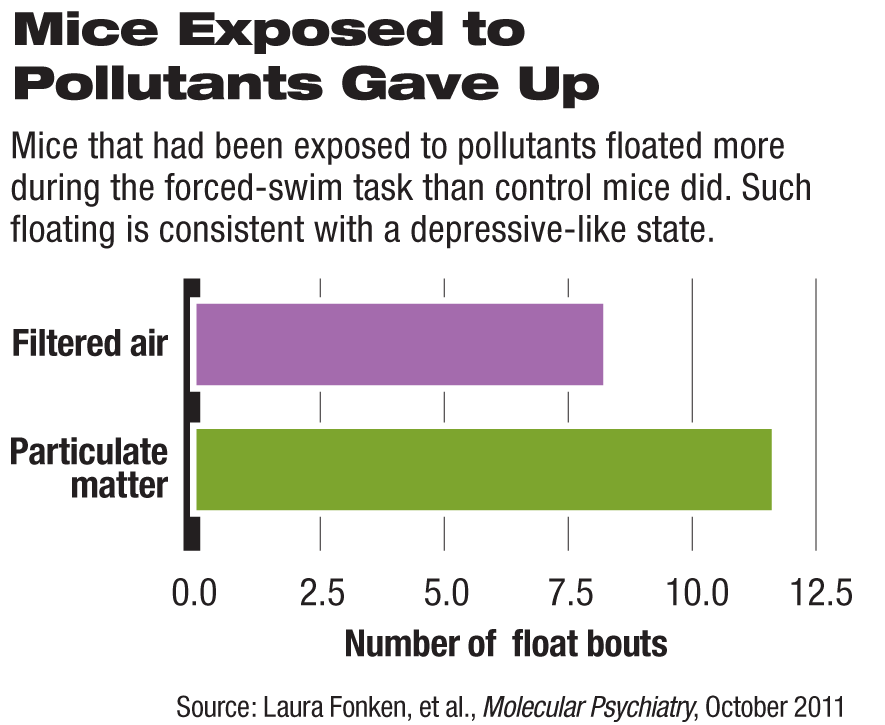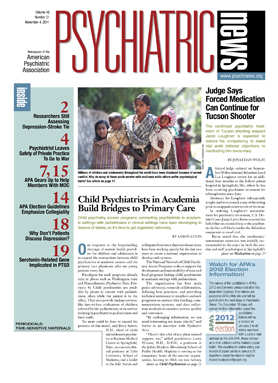Not long ago, scientists linked suicides with air pollutants such as particulate matter, sulfur dioxide, and ozone (Psychiatric News, June 17). A growing body of literature is implicating secondhand smoke exposure in depression. And now scientists report that long-term exposure to airborne particulate matter leads, in mice at least, to depression-like behavior, learning and memory problems, and neuroinflammation in the hippocampus.
The lead investigator of the new study was Laura Fonken, a neuroscience graduate student at Ohio State University. The results appeared in the October Molecular Psychiatry.
Fonken and her colleagues exposed one group of four-month-old male mice for 10 months to particulate air pollution and another group of four-month-old male mice for 10 months to filtered air. At the end of that time, both groups underwent a battery of behavioral tests to evaluate affective responses and learning and memory. Following behavioral testing, the mice were re-exposed to their respective air conditions for one month.
The researchers found that the mice that had been exposed to the particulate pollutants demonstrated more depressive-like symptoms and learning and memory problems than the control mice. And the hippocampi of the group that had been exposed to the pollutants showed both proinflammatory cytokines and neuronal damage compared with the hippocampi from the control group.
Thus it looked as if air particulates caused depression-like and learning and memory problems in the mice that had been exposed to them long term and that the particulates might have done so by damaging the hippocampus, since that brain region is highly vulnerable to injury and inflammation and hippocampal changes in both humans and rodents have been linked with depression and cognitive impairment.
The researchers also speculated on how particulates might have damaged the mice's hippocampi. Since particulates have been heavily implicated in heart and lung illnesses, it's possible that immune reactions in the mice's hearts and lungs to particulates led to the formation of inflammatory substances such as cytokines. These substances might then have crossed the blood-brain barrier into the mice's brains and damaged neurons in the hippocampus.
"Taken together, these data suggest that long-term exposure to particulate air pollution levels typical of exposure in major cities around the globe can alter affective responses and impair cognition," they concluded. And if that is indeed the case, then the public-health implications could be profound since "in many regions of the world, individuals are exposed to particulate air pollution over their entire lives."
The study was funded by the National Institutes of Health.
An abstract of "Air Pollution Impairs Cognition, Provokes Depressive-like Behaviors, and Alters Hippocampal Cytokine Expression and Morphology" is posted at <www.nature.com/mp/journal/v16/n10/abs/mp201176a.html>.


